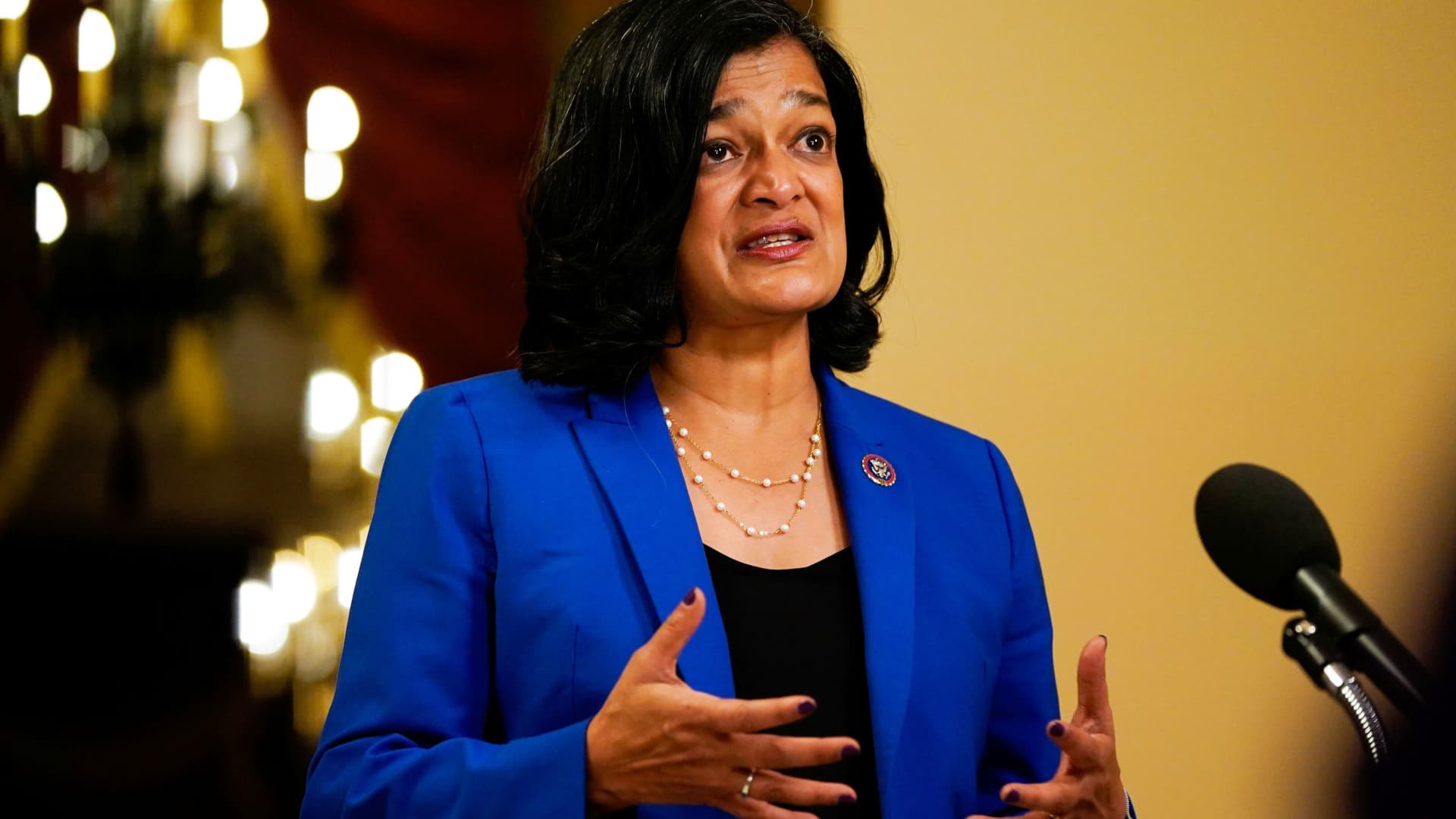Social Security crossed a new milestone when it reached its 87th anniversary on Sunday.
The program was signed into law by President Franklin Delano Roosevelt on Aug. 14, 1935. Today it provides monthly checks to more than 65 million beneficiaries.
But it now faces a deadline after which the program will no longer be able to pay full benefits, if Congress does not act sooner.
In 2035, according to the program’s trustees, just 80% of benefits will be payable.
House Democrats John Larson of Connecticut and Pramila Jayapal of Washington teamed up on Monday to call to bring a bill to expand Social Security up for a vote this fall.
More from Personal Finance:
Social Security average monthly benefit could rise $159 in 2023
Protecting Social Security from inflation high on voters’ minds
Social Security calculators can gauge how cuts may affect you
That proposal, called Social Security 2100: A Sacred Trust, would expand benefits, which has not been done in about 51 years, noted Larson, who proposed the bill and who serves as chair of the House Ways and Means Subcommittee on Social Security.
“It’s long overdue that we make sure that we’re enhancing a program that they need, especially during this pandemic,” Larson said of the program’s beneficiaries.
Jayapal, who serves as chair of the progressive caucus, urged action as soon as next month.
“When Congress returns from recess in September, we need to bring this bill up in committee, and then send it to the floor for a vote,” Jayapal said.
How bill would expand retirement benefits
The latest Social Security 2100 bill put forward by Larson seeks to enhance Social Security benefits in multiple ways.
It calls for increasing all checks by about 2% of the average benefit. At the same time, it would also set the minimum benefit above the poverty line and tie it to current wage levels.
The measure for the annual cost-of-living adjustment would be changed with the goal of better keeping up with the costs retirees face.
Widows and widowers would also receive more generous benefits. It would repeal rules that reduce benefits for public workers, including the Windfall Elimination Provision and Government Pension Offset.
The bill also calls for providing caregiver credits to people who take time out of the workforce to care for children or other family members.
Benefits for students would be extended to age 26. Children who live with grandparents or other relatives would also have increased access to benefits.
The bill also calls for ending the five-month waiting period for disability benefits.
In order to pay for the benefit increases, the bill calls for reapplying the Social Security payroll tax on wages above $400,000, which would affect an estimated 0.4% of wage earners.
Currently, wages of up to $147,000 are taxed for Social Security in 2022. Employers and employees each pay a 6.2% tax on wages, for a total of 12.4%.
Bipartisan support may be hard to come by
Social Security 2100: A Sacred Trust currently has 202 Democratic co-sponsors in the House of Representatives.
It is one of several Democratic proposals that aim to tackle Social Security reform. While the proposals vary, each seeks to sweeten benefits while making the wealthy pay more into the program.
However, one key difference is how long they would extend the program’s solvency. The Social Security 2100 Act would extend the depletion date to 2038 from the current projected date of 2035. Another proposal led by Sens. Bernie Sanders, I-Vt., and Elizabeth Warren, D-Mass., would extend the program’s solvency past 2096 while also expanding benefits.
While Democrats may negotiate the details of their proposals, they will also have to contend with Republicans who have expressed their opposition to expanding benefits and raising taxes.
Sen. Rick Scott, R-Fla., has received criticism for a proposal to sunset government programs such as Social Security and Medicare every five years. In a June Senate hearing, he denied any intention of cutting benefits.
“I’ve proposed that Congress rightly review these programs,” Scott said. “I’m never going to support cuts to Social Security, Medicare or Medicaid.”
Regardless, support from both parties will be needed to pass any changes to the program in both chambers. But it remains to be seen what fixes both sides can agree on.
“Any Social Security reform that may pass, that can be enacted, is going to be a compromise,” said Andrew Biggs, senior fellow at the American Enterprise institute who was nominated to the Social Security Advisory Board by President Joe Biden, in a recent CNBC.com interview.
